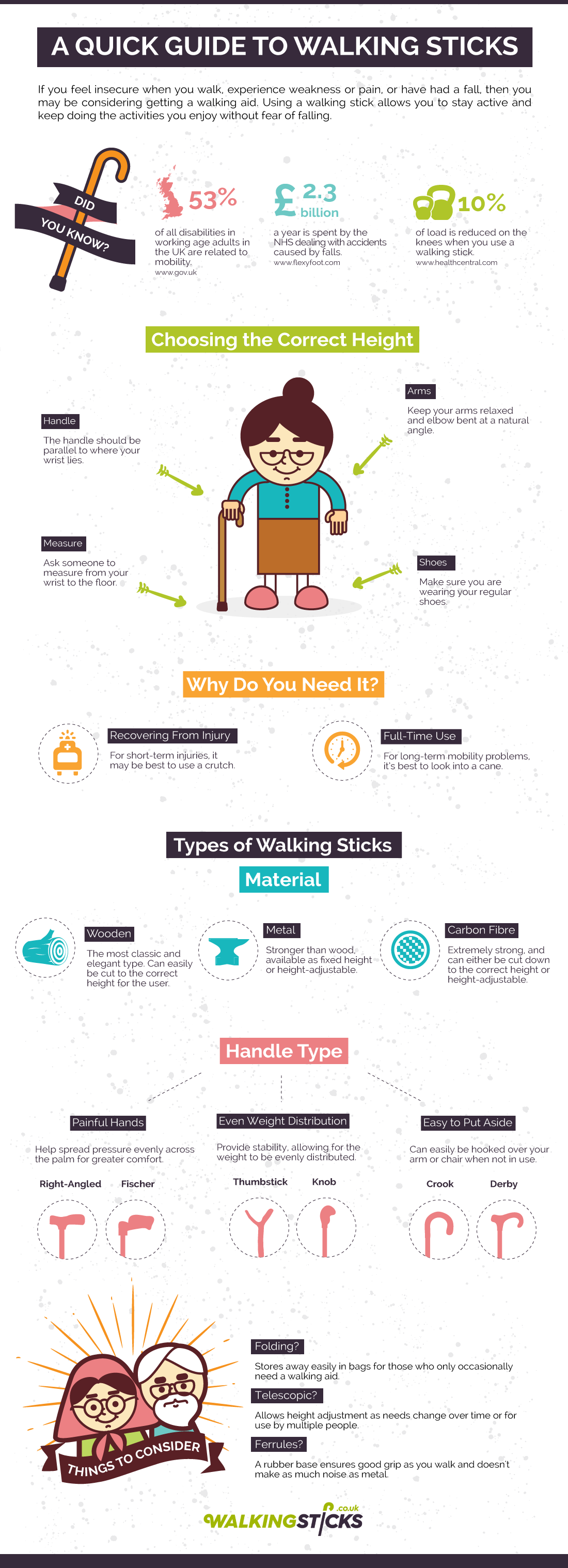A Quick Guide to Walking Sticks
2 November 2017

A Quick Guide to Walking Sticks
If you feel insecure when you walk, experience weakness or pain, or have had a fall, then you may be considering getting a walking aid. Using a walking stick allows you to stay active and keep doing the activities that you enjoy without fear of falling.
Did You Know?
- 53% of all disabilities in working age adults in the UK are related to mobility
- £2.3 billion a year is spent by the NHS dealing with accidents caused by falls
- 10% of load is reduced on the knees when you use a walking stick
Choosing the Correct Height
- Handle: The handle should be parallel to where your wrist lies
- Arms: Keep your arms relaxed and elbow bent at a natural angle
- Shoes: Make sure you are wearing your regular shoes
- Measure: Ask someone to measure from your wrist to the floo
Why Do You Need It?
- Recovering from injury: For short-term injuries, it may be best to use a crutch
- Full-Time Use: For long-term mobility problems, it's best to look into a cane
Types of Walking Sticks
Material
- Wooden: the most traditional and elegant type. Can easily be cut to the correct height for the user.
- Metal: Stronger than wood, available as fixed height or height-adjustable.
- Carbon Fibre: Extremely strong, and can be either cut down to the correct height or height-adjustable.
Handle Type
- Painful Hands: Help spread pressure evenly across the palm for greater comfort (such as right-angled and Fischer)
- Even Weight Distribution: Provide stability allowing for the weight to be evenly distributed (such as thumbstick or knob)
- Easy to Put Aside: Can easily be hooked over your arm or chair when not in use (such as crook or Derby)
Things to Consider
- Folding: Stores away easily in bags for those who only occasionally need a walking aid.
- Telescopic: Allows height adjustment as needs change over time or for use by multiple people.
- Ferrules: A rubber base ensures a good grip as you walk and doesn't make as much noise as metal.
